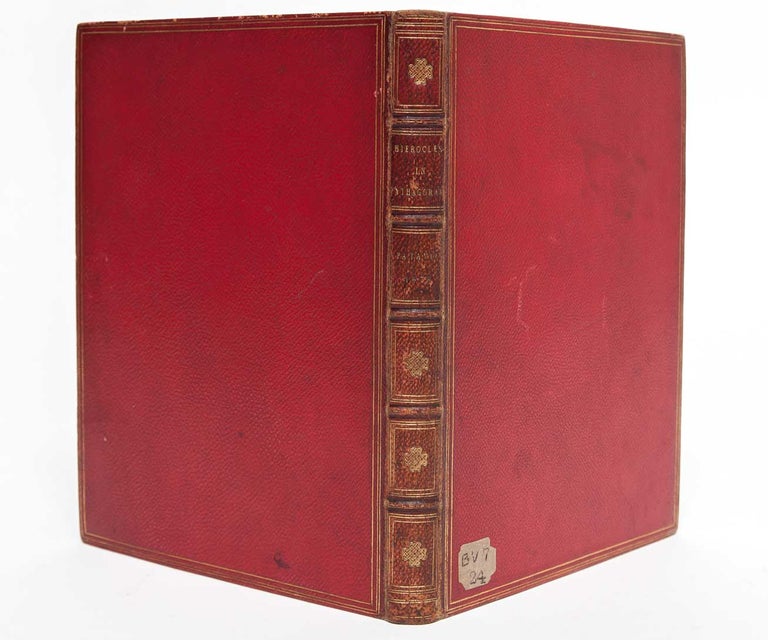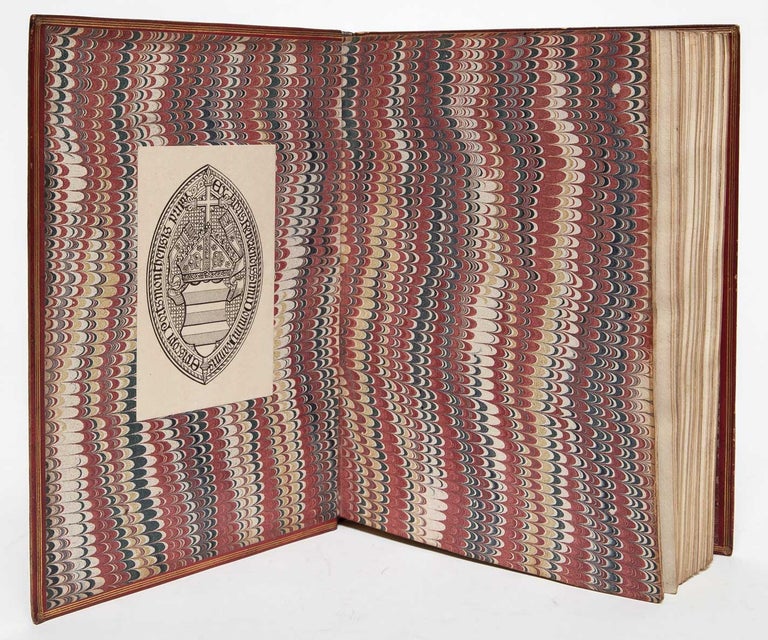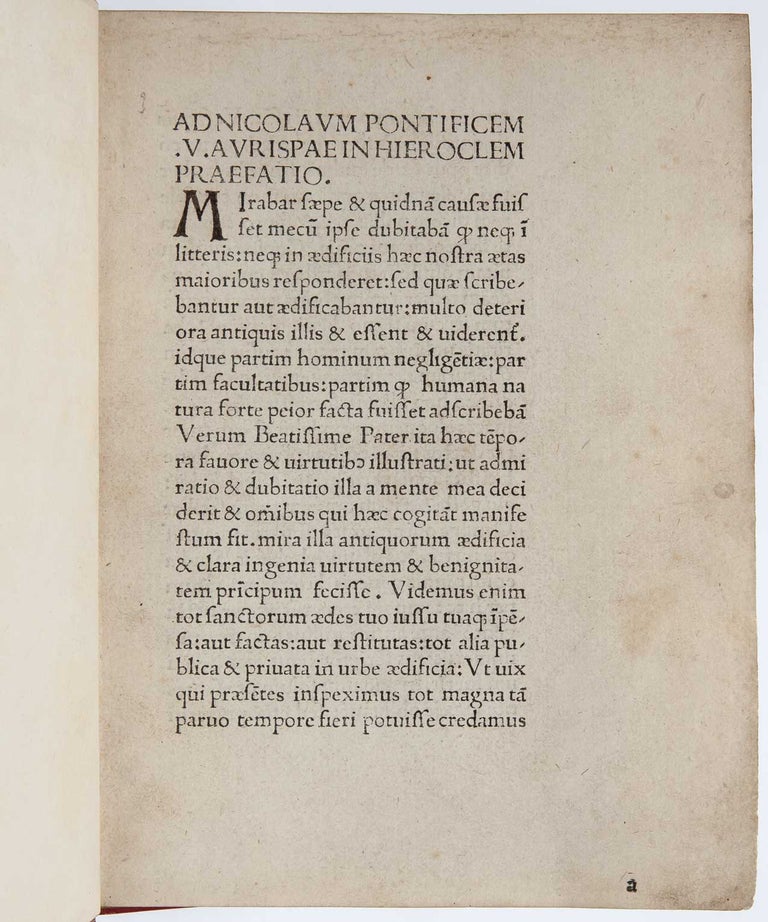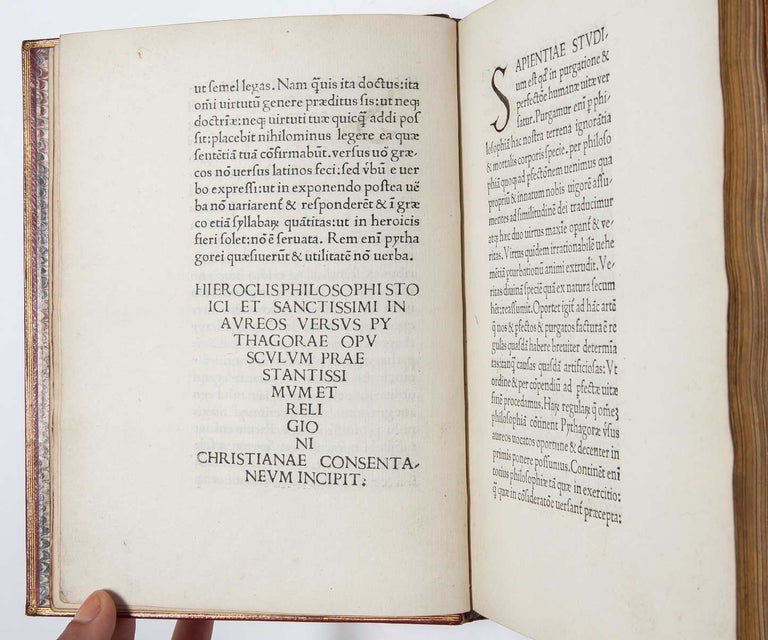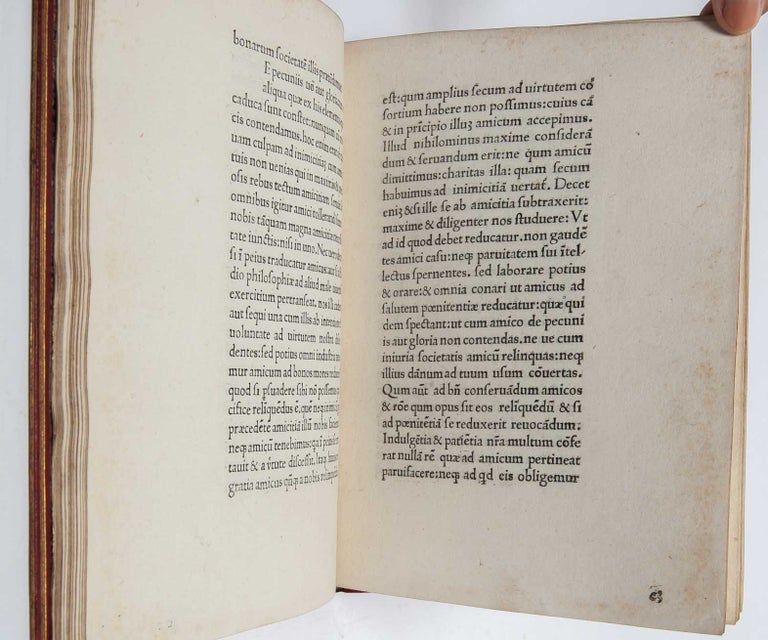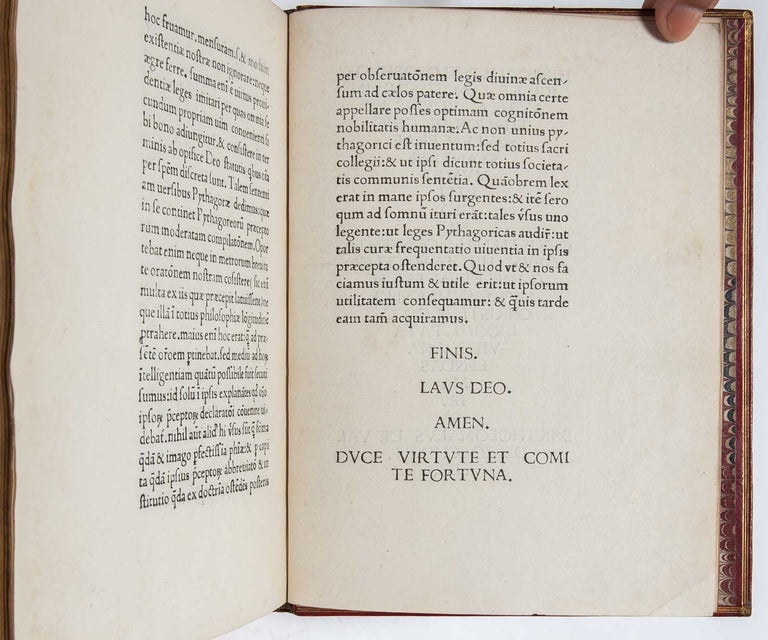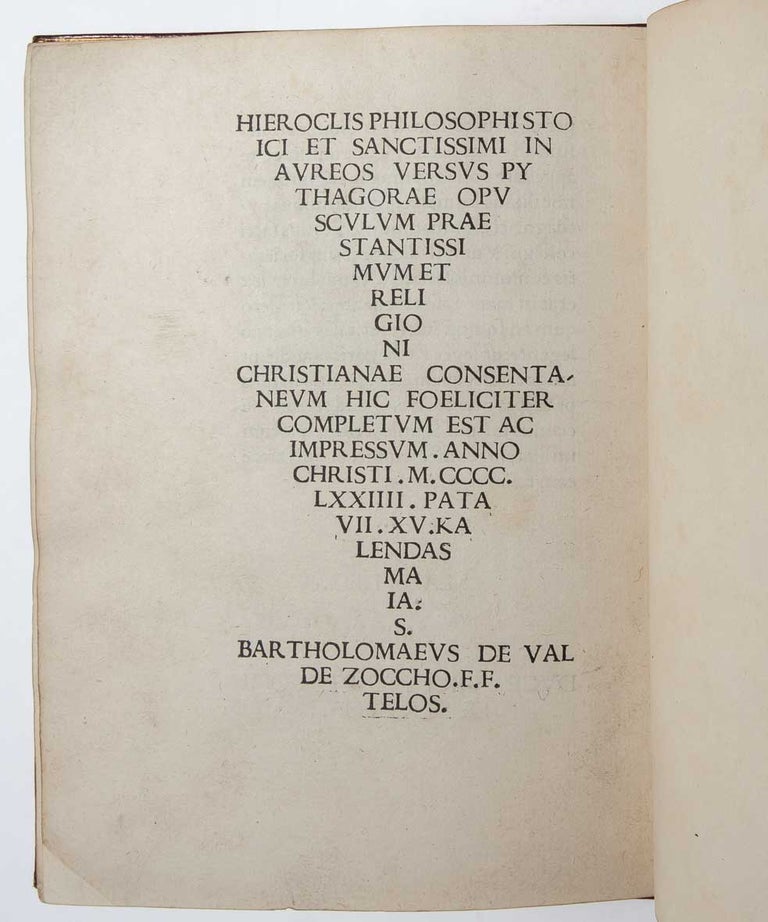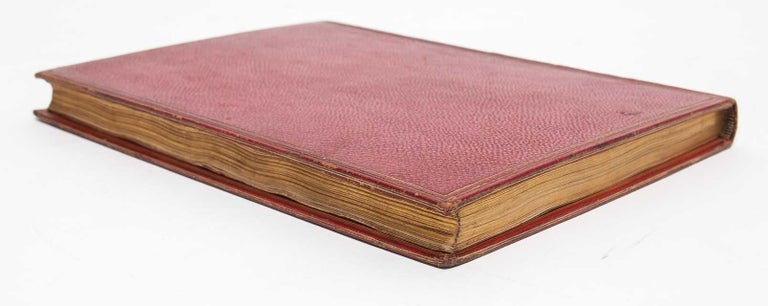In aureos versus Pythagorae opusculum
Padua: Bartholomaeus de Valdezoccho, April 17, 1474.
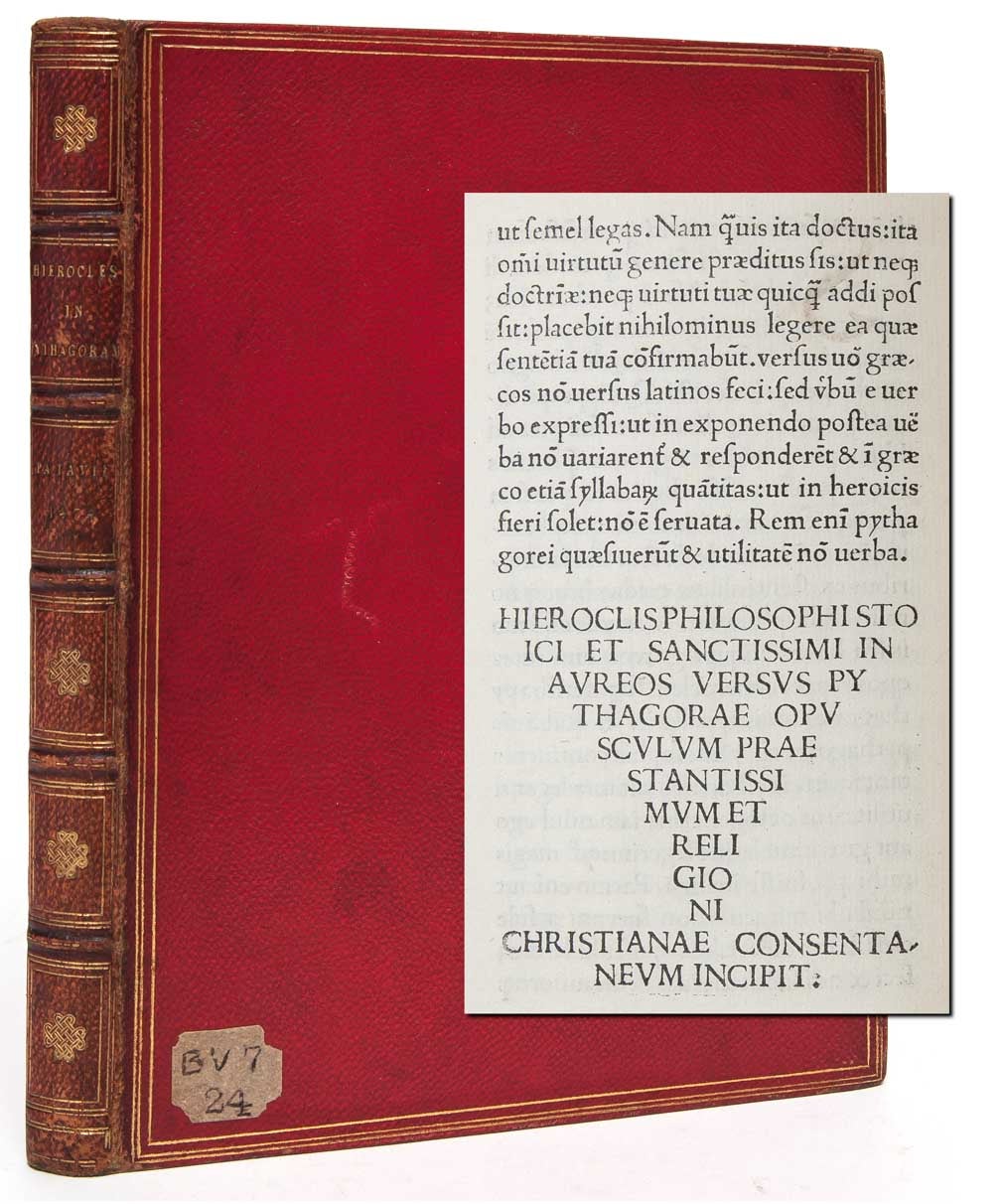

In aureos versus Pythagorae opusculum
Padua: Bartholomaeus de Valdezoccho, April 17, 1474. First edition. Quarto (8 x 6 3/4 inches; 196 x 147 mm): 91 (of 92) leaves, unfoliated. Collation: a8-h8, [i8, k8, l6, m5). Lacking final blank (m6). Signatures i-m trimmed off of bottom margin as usual in this edition. With 2-4 line initials. 24 lines. Occasional initial supplied in later black ink. Title from foot of leaf a2v; imprint from colophon, leaf m5v. Translated from the original Greek by Johannes Aurispa.
Nineteenth-century red morocco. Boards triple-ruled in gilt. Spine ruled, stamped and lettered in gilt. Joints lightly rubbed. Pages likely washed at the time of binding. Small repair to torn corner of leaf m5, not affecting text. Previous owner's bookplate. With wide margins still preserving in the lower extreme corners several of the signatures [ah] printed hy hand for direction of the binder. Overall a fine copy.
First printing of Pythagoras and his 'Golden Verses' (collection of moral exhortations) with the commentary which is the only complete extant work by Hierocles. While Pythagoras is widely known for his mathematical theorem that the square of the hypotenuse is equal to the sum of the squares of the other two sides. (A2 + B2 = C2), he was foremost a philosopher, yet none of his writings have survived. "The early evidence shows, however, that, while Pythagoras was famous in his own day and even 150 years later in the time of Plato and Aristotle, it was not mathematics or science upon which his fame rested. Pythagoras was famous (1) as an expert on the fate of the soul after death, who thought that the soul was immortal and went through a series of reincarnations; (2) as an expert on religious ritual; (3) as a wonder-worker who had a thigh of gold and who could be two places at the same time; (4) as the founder of a strict way of life that emphasized dietary restrictions, religious ritual and rigorous self discipline. "(Stanford Encyclopedia of Philosophy)
"Hierocles of Alexandria was a Neoplatonist writer, flourished c. a.d. 430. He studied under the celebrated Neoplatonist Plutarch at Athens, and taught for some years in his native city... The only complete work of his which has been preserved is the commentary on the Carmzna Anrea (Golden Verses) of Pythagoras. It enjoyed a great reputation in middle age and Renaissance times, and there are numerous translations in various European languages." (Britannica)
"A very elegant specimen of early typography from the press of Padua's first printer the type rivals in beauty with that of Vendelin of Speier, Jenson, Aldus and other famous Venetian printers..." (The Library of Charles W. Clark, Volume 2) One of a handful of books issued by Valdezoccho alone (he had printed in partnership with Martinus de Septum Arboribus at Padua since 1471). Like others in his output, the book shows a highly unusual placement of printed signatures: well to the right and below the last line of text. For this reason they are usually partially or entirely cropped away: the British Library copy, like the present, lacks most of the signatures in the final four quires.
BMC VII, 906. Goff H-151. GW 12409. IGI 4726. ISTC ih00151000. Klebs 516.1. (Item #1873)

